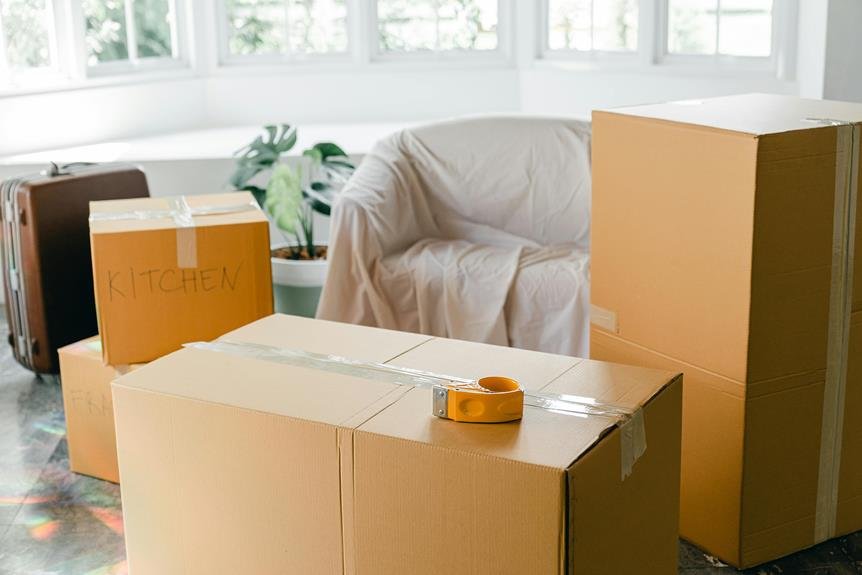When deciding between JB Weld and Loctite for your adhesive needs, consider the following: JB Weld is great for sheer force, while Loctite offers flexibility for dynamic parts. JB Weld excels in rigid bonds, while Loctite suits parts with varying stress. JB Weld cures in 4-6 hours, while Loctite might set faster. JB Weld stands well against extreme heat, while Loctite fares better in freezing conditions. Both are waterproof, with JB Weld excelling. These factors play an important role in determining the best adhesive for your specific needs.
A Quick Overview
- JB Weld is perfect for applications with sheer force, making it great for rigid bonds.
- Loctite provides flexibility to accommodate dynamic movements and varying stress levels.
- Take into account curing and setting times to meet project timelines efficiently.
- Use JB Weld for extreme heat resistance and Loctite for cold resistance.
- Both products offer outstanding waterproof properties, ensuring durability in moist environments.
Strength Comparison
When comparing the strength of JB Weld and Loctite adhesives, consider their bonding capabilities under various conditions.
Tensile vs shear strength highlights how JB Weld excels in sheer force applications, while Loctite provides more flexibility for dynamic movements.
JB Weld's bonding strength is unmatched for rigid bonds, but Loctite offers greater flexibility, making it ideal for parts that experience varying stress levels.
Choose based on your specific needs for best results.
Application Methods
Consider the various ways in which JB Weld and Loctite adhesives can be applied to achieve the best results for your bonding needs.
- Mixing Ratios: Follow the specified ratios to guarantee proper bonding.
- Curing Process: Allow sufficient time for the adhesive to cure fully.
- Application Techniques: Apply evenly and according to instructions for best results.
- Surface Preparation: Make sure surfaces are clean and dry before applying the adhesive.
Setting Time Differences
To determine the best adhesive for your project, understanding the setting time differences between JB Weld and Loctite is essential.
JB Weld typically sets in 4-6 hours, while Loctite may set faster depending on the materials being bonded.
The curing process varies, with JB Weld requiring more time for a full cure compared to Loctite.
Consider these factors when choosing the adhesive that best suits your project's timeline.
Temperature Resistance
Withstanding varying temperatures is an important aspect to compare when evaluating the performance of JB Weld and Loctite adhesives. When considering temperature resistance, here are key points to keep in mind:
- High heat capabilities of JB Weld for extreme temperature applications.
- Loctite's impressive cold resistance for freezing conditions.
- Thermal expansion limitations of JB Weld in certain situations.
- Loctite's ability to maintain stability under fluctuating temperatures.
Waterproof Properties
Coming from the discussion on temperature resistance, let's now explore the waterproof properties of JB Weld and Loctite adhesives. Both options exhibit strong chemical resistance when exposed to water, ensuring durability in wet conditions.
JB Weld offers excellent waterproofing capabilities, ideal for projects requiring a secure bond in moist environments.
Loctite, on the other hand, provides additional flexibility options, allowing for versatile applications in various settings.
Versatility in Materials
When selecting an adhesive for your projects, considering the versatility in materials each product offers is crucial to achieving the desired results.
- Surface compatibility: Confirm the adhesive is suitable for the specific materials you're working with.
- Drying time: Check how fast the adhesive sets to align with your project's timeline.
- Bonding strength: Assess how well the adhesive securely bonds different materials.
- Flexibility: Determine if the adhesive allows for movement without losing its grip.
Longevity and Durability
For a reliable adhesive that can stand the test of time, look for a product that demonstrates exceptional longevity and durability.
When considering JB Weld vs. Loctite, both brands undergo rigorous resistance tests to make sure their adhesives hold up in various real-life applications.
These tests simulate harsh conditions to assess how well the adhesives bond, providing a good indicator of their longevity and durability in practical situations.
Cost-Effectiveness
To determine the cost-effectiveness between JB Weld and Loctite adhesives, evaluate their price per unit and compare it against their performance and durability. Consider the long term savings and durability each adhesive offers.
Look for budget-friendly options that still maintain effectiveness. Calculate the overall value each adhesive provides regarding cost and durability to make sure you're making a wise investment.
Frequently Asked Questions
Can JB Weld and Loctite Be Used on Food-Safe Items?
When thinking about food-safe items, it's important to prioritize safety. Remember that both JB Weld and Loctite can be used on food-safe items, but always follow safety precautions to guarantee proper application and usage.
Are There Any Health Hazards Associated With JB Weld or Loctite?
Long term effects and safety concerns linked to JB Weld or Loctite can arise if not used with proper ventilation. Be cautious to prevent health hazards. Consider environmental impact when working with these adhesives.
Do JB Weld and Loctite Have a Strong Odor?
Yes, both JB Weld and Loctite have a strong odor. To manage it, guarantee proper ventilation. Safety measures encompass using them in well-ventilated areas and wearing a mask. Consider odor control products for a more pleasant experience.
Can JB Weld or Loctite Be Used on Electrical Components?
Yes, both JB Weld and Loctite can be used on electrical components. They offer good heat resistance, conductivity, insulation, and durability. Make sure to follow instructions for proper application to guarantee effectiveness and safety.
Are JB Weld and Loctite Safe to Use Indoors?
When using adhesives like JB Weld or Loctite indoors, make sure to have proper ventilation. Follow safety precautions due to potential toxicity. Ventilation is key for indoor application of these products to keep you safe.


